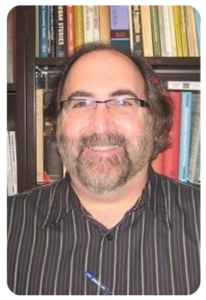 Tim Biblarz, (2007-2012; 2016-present)
Tim Biblarz, (2007-2012; 2016-present)
Tim joined the USC Sociology department in 1992 and currently holds a second appointment in Gender Studies. He served as Director of Graduate Studies in the Sociology department from 2001-2005, President of USC Dornsife College’s Faculty Council in 2010-11, and Faculty Master of South Residential College from 2012 to the present. Tim has received many honors for his teaching and research, including USC’s General Education Teaching Award, and two Best Article in Sex and Gender Awards from the American Sociological Association. His research has made contributions in the areas of family sociology, stratification, and gender and sexuality, with a focus on social inequalities over time, over the life course, and across generations.
 Rhacel Salazar Parreñas, (2012-2015)
Rhacel Salazar Parreñas, (2012-2015)
Rhacel is a Professor of Sociology and Gender Studies at the University of Southern California. She is known for her work on women’s labor and migration in economic globalization. She has received more than 100 invitations to share her work at universities, government and nongovernmental institutions, and research think-tanks throughout the United States, Europe and Asia, including the United Nations and the U.S. Civil Rights Commission. Her research has been featured in various news media outlets including NPR’s The World, Bloomberg News, the New York Times, Wall Street Journal, de Volkskrant, and American Prospect. Her dissertation was made into a documentary, The Chain of Love (2000), by the public broadcasting station VPRO-TV in the Netherlands. Professor Parreñas has co-edited three anthologies and has written four monographs as well as numerous peer-reviewed articles. Her latest book Illicit Flirtations: Labor, Migration and Sex Trafficking in Tokyo (Stanford, 2011) won the Distinguished Book Award in the Labor and Labor Movements Section of the American Sociological Association. She has received research funding from the Ford Foundation, Rockefeller Foundation, and National Science Foundation, and has received fellowship invitations from the Center for Advanced Study in the Behavioral Sciences at Stanford University and the Institute for Advanced Study at Princeton, NJ. Her work is translated into French, Spanish, Italian, German, Polish, Korean, and Japanese.
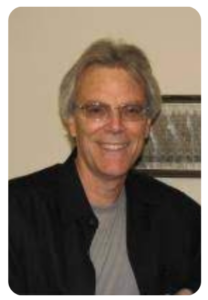 Michael A. Messner, (2001-2007; 2015-2016)
Michael A. Messner, (2001-2007; 2015-2016)
Mike Messner arrived at USC in 1987 with a joint appointment in Sociology and the Gender Studies Program. Messner has published numerous books and articles on masculinities, gender and sport, and men and politics. In 2006 he was given USC’s Associates Award for Excellence in Teaching, and USC College’s Raubenheimer Outstanding Senior Faculty Award for Research, Teaching and Service. He served as President of the Pacific Sociological Association in 2010, and in 2012 he was the recipient of the American Sociological Association’s Jessie Bernard Award.
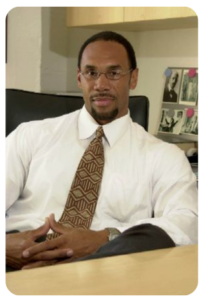 Darnell M. Hunt, (2000-2001)
Darnell M. Hunt, (2000-2001)
Darnell Hunt was a member of the USC sociology department from 1996 until 2001, when he departed to take a position at UCLA. Hunt taught graduate and undergraduate courses on media and culture, and race relations. Hunt’s work made prominent contributions to the study of media and race, including his book OJ Simpson, Facts and Fiction.
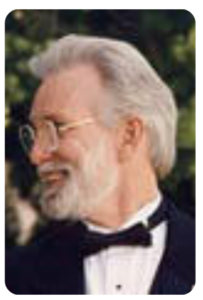 Jon Miller, (1997-2000)
Jon Miller, (1997-2000)
Jon Miller joined the USC department of sociology in 1967, where he taught undergraduate and graduate courses in sociological theory, work, organizations, and religion. In addition to serving as department chair, Miller served as the sociology department’s Director of Graduate studies from 1986 through 1995. Miller authored many articles and books, utilizing historical-comparative approaches, including Missionary Zeal and Institutional Control. The recipient of USC’s Associates Award for Excellence in Teaching, Miller became in 2000 the Director of Research at USC’s Center for Religion and Civic Culture.
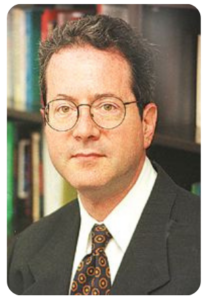 Barry Glassner, (1991-1997)
Barry Glassner, (1991-1997)
Barry Glassner arrived at USC in 1991 as department chair. The founding Editor of the journal Qualitative Sociology, Glassner is the author of many books, including his widely acclaimed The Culture of Fear. The founding Director of the USC Casden Institute for the Study of the Jewish Role in American Life, Glassner was the recipient of the USC Associates Award for Excellence in Research. In 2005, he was promoted to the position of Executive Vice Provost at USC, and in 2010 he left USC to become the President of Lewis and Clark College.
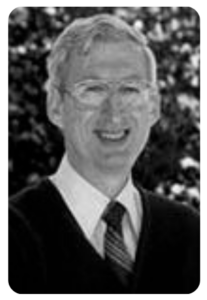 Carlfred B. Broderick, (1989-1991)
Carlfred B. Broderick, (1989-1991)
A nationally recognized researcher in the field of marriage and families, Broderick joined the USC department of sociology in 1971. He served several years as editor of the Journal of Marriage and the Family. From 1971 through his retirement in 1997, he was executive director of USC’s Marriage and Family Therapy Training Program, and director of the Human Relations Center. He was a president of the National Council on Family Relations, and a senior member of the Mormon Church.
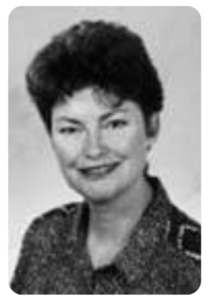 Judith Treas, (1984-1989)
Judith Treas, (1984-1989)
Judith Treas was a USC faculty member from 1974-1989, when she departed to become the founding chair of the sociology department at UC Irvine. A prominent scholar of family demography and aging, Treas was the first woman to serve as chair for USC’s sociology department.
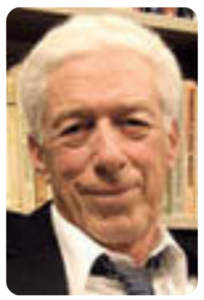 Malcolm Klein, (1971-1984)
Malcolm Klein, (1971-1984)
Mac Klein was a faculty member of the USC department of sociology from 1962 through 1998. An internationally recognized criminologist and scholar of youth gangs, Klein founded the USC Social Science Research Institute in 1971. The author or editor of eighteen books, Klein was the recipient of many awards, including the USC Associates Award for Creativity in Research and Scholarship, and the Sutherland Award from the American Society of Criminology.
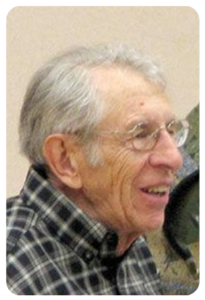 LaMar T. Empey, (1967-1971)
LaMar T. Empey, (1967-1971)
LaMar Empey conducted breakthrough research in the field of juvenile delinquency rehabilitation (The Provo Experiment) at the University of Utah, before coming to USC in 1958 as director of the Youth Studies Center. Here, he replicated the previous study (The Silverlake Experiment, 1971). After serving as sociology department chair, Empey served as associate research director of the USC Gerontology Center from 1971 through 1974. Author of many books, including the text American Delinquency: Its Meaning & Construction, Empey was given the Sutherland Award, the highest honor in he field of criminology.
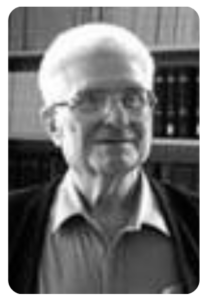 Clarence C. Schrag, (1966-1967)
Clarence C. Schrag, (1966-1967)
Clarence Schrag was a major figure in the sociology of crime, and he worked for several years in Washington State Department of Corrections facilities. He served a brief few years at USC before returning to his previous position at the University of Washington, where he was serving as sociology department chair when he retired in 1983.
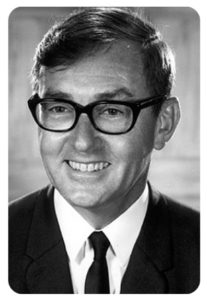 Thomas A. Lasswell, (1965-1966)
Thomas A. Lasswell, (1965-1966)
Thomas Lasswell received his Ph.D. in sociology at USC in 1953, after which he joined the faculty. Lasswell was a national leader in the sociology of the family, authoring many articles and texts in the field. He was a central member of the USC Marriage and Family Therapy Center, including serving as its coordinating director, from 1970-71. Lasswell’s texts, including Marriage and the Family, were widely adopted in college courses.
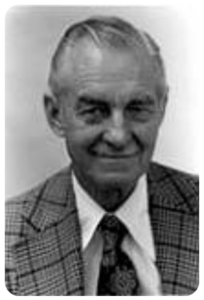 James A. Peterson, (1962-1965 )
James A. Peterson, (1962-1965 )
James Peterson received his Ph.D. in sociology at USC in 1951. During his long tenure at USC, he founded and directed the Marriage and Counseling Therapy Center, and helped to found the Gerontology Center. A frequent guest on the Art Linkletter television show, Peterson hosted his own TV show on marriage and family relationships. After retirement, he headed the USC Emeriti Center.
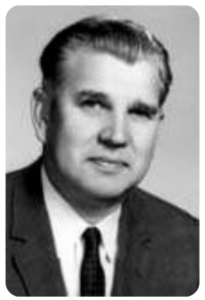 Edward C. McDonagh, (1958-1962)
Edward C. McDonagh, (1958-1962)
Edward C. McDonagh was a professor of sociology at USC from 1947-1969 and dean of the division of social sciences and communications from 1960-69. He also served as dean of the College of Social and Behavioral Sciences at Ohio State University from 1974-78.
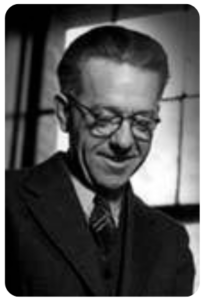 Martin H. Neumeyer, (1954-1958)
Martin H. Neumeyer, (1954-1958)
Martin Neumeyer received his Ph.D. in sociology from the University of Chicago. He served on the faculty at USC from 1927-1962, teaching courses in poverty, juvenile delinquency, urban community, and sociology of recreation. He was the managing Editor of Sociology and Social Research from 1934-1960, and President of the Pacific Sociological Association in 1941.
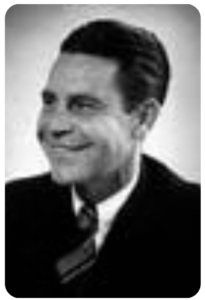 Melvin J. Vincent, (1946-1954)
Melvin J. Vincent, (1946-1954)
One of the initial four in the first group ever to receive the Ph.D. in sociology at USC in 1928, Vincent taught at USC for 35 years in the fields of Social Psychology, Social Drama, and Industrial Sociology. He was a founding member of the sociology honor society, Alpha Kappa Delta.
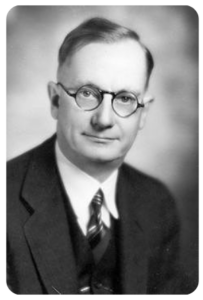 Emory S. Bogardus, (1915-1946)
Emory S. Bogardus, (1915-1946)
Served as the USC sociology department’s founding Chair for over three decades. A nationally respected scholar of immigration and race relations, Bogardus founded several journals, as well as the sociology honor society, Alpha Kappa Delta. He served as the first President of the Pacific Sociological Association, and served in 1931 as President of the American Sociological Association.